- Home
- Vladimir Nabokov
Strong opinions Page 21
Strong opinions Read online
Page 21
SARTRE'S FIRST TRY
Nausea. By JeanPaul Sartre. Translated by Lloyd
Alexander. 238 pp. New York: New Directions, 1949
Sartre's name, I understand, is associated with a fashionable brand of cafe philosophy, and since for every so-called «existentialist» one finds quite a few «suctorialists» (if I may coin a polite term), this made-in-England translation of Sartre's first novel, La Nausee (published in Paris in 1938) should enjoy some success.
It is hard to imagine (except in a farce) a dentist persistently pulling out the wrong tooth. Publishers and translators, however, seem to get away with something of that sort. Lack of space limits me to only these examples of Mr. Alexander's blunders.
1. The woman who «s'est offert, avec ses economies, un jeune homme» (has bought herself a young husband with her savings) is said by the translator (p. 20) to have «offered herself and her savings» to that young man.
2. The epithets in «If a Vair souffreteux et mauvais» (he looks seedy and vicious) puzzled Mr. Alexander to such an extent that he apparently left out the end of the sentence for somebody else to fill in, but nobody did, which reduced the English text (p. 43) to «he looks».
3. A reference to “ce pauvre Gbebenno» (French writer) is twisted (p. 163) into «Christ . . . this poor man of Gehenna».
4. The “foret de verges” (forest of phalli) in the hero's nightmare is misunderstood as being some sort of birch wood.
Whether, from the viewpoint of literature, La Nauseewas worth translating at all is another question. It belongs to that tenselooking but really very loose type of writing, which has been popularized by many second-raters — Barbusse, Celine, and so forth. Somewhere behind looms Dostoevski at his worst, and still farther back there is old Eugene Sue, to whom the melodramatic Russian owed so much. The book is supposed to he the diary («Saturday morning», «11.00 p.m». — that sort of dismal thing) of a certain Roquentin, who, after some quite implausible travels, has settled in a town in Normandy to conclude a piece of historical research.
Roquentin shuttles between cafe and public library, runs into a voluble homosexual, meditates, writes his diary, and finally has a long and tedious talk with his former wife, who is now kept by a suntanned cosmopolitan. Great importance is attached to an American song on the cafe phonograph: «Some of these days you'll miss me, honey». Roquentin would like to be as crisply alive as this song, which «saved the Jew [who wrote it] and the Negress [who sang it]» from being «drowned in existence».
In an equivocal flash of clairvoyance (p. 235) he visualizes the composer as a clean-shaven Brooklynite with «coal-black eyebrows» and «ringed fingers», writing down the tune on the twenty-first floor of a skyscraper. The heat is terrific. Presently, however, Tom (probably a friend) will come in with his hip flask (local color) and they will take swigs of liquor («brimming glasses of whisky» in Mr. Alexander's lush version). I have ascertained that in reality the song is a Sophie Tucker one written by the Canadian Shelton Brooks.
The crux of the whole book seems to be the illumination that comes to Roquentin when he discovers that his «nausea» is the result of the pressure of an absurd and amorphous but very tangible world. Unfortunately for the novel, all this remains on a purely mental level, and the discovery might have been of some other nature, say solipsistic, without in the least affecting the rest of the book. When an author inflicts his idle and arbitrary philosophic fancy on a helpless person whom he has invented for that purpose, a lot of talent is needed to have the trick work. One has no special quarrel with Roquentin when he decides that the world exists. But the task to make the world exist as a work of art was beyond Sartre's powers.
[The New York Times Book Review, when publishing this piece in its issue of April 24, 1949, left out my fourth example of Mr. Alexander's blunders. From Ithaca, N. Y., where I was teaching at Cornell University, I immediately propelled a fierce telegram accusing the editor of having disfigured my article. On Monday, April 25, I delivered my third and last lecture on Turgenev's Fathers and Children. On Tuesday night we had guests at our dreadfully dratty dacha on steep Seneca Street (Lloyd Alexander would have glossed: Lucius Annaeus). I regaled them with a copy of that violent wire. One of my colleagues, a tense young scholar, observed with a humorless chuckle: «Yes, of course, that's what you would want to have sent, as we all must have wanted in many similar cases». My retort, I thought, was not unfriendly, but my wife said later I could not have been ruder. On Wednesday I started to analyze, before a torpid class full of vernal languor, Tolstoy's Death of Ivan Ilyich. On Thursday I got a letter from The New York Times Book Review explaining their action by «considerations of space» I have now reinstated the missing passage from a note in my files. I do not know if the editor was sufficiently farsighted to preserve my typescript and telegram. According to the italicized bit at the bottom of the piece: «Mr. Nabokov is the author of The Real Life of Sebastian Knight» — which had been published by New Directions.]
POUNDING THE CLAVICHORD
The author of a soon-to-be-published translation may find it awkward to criticize a justpublished version ot the same work, but in the present case I can, and should, master my embarrassment; for something must be done, some lone, hoarse voice must be raised, to defend both the helpless dead poet and the credulous college student from the kind of pitiless and irresponsible paraphrast whose product * I am about to discuss. [* Alexander Pushkin, Eugene Onegin. A new translation in the Oucgui stanza with an introduction and notes by Waller Arndt. A Dutton paperback, New York, 1963.]
The task of twisting some five thousand Russian iambic tetrameters, with a rigid pattern of masculine and feminine rhymes, into an equal number of similarly rhymed English iambic tetrameters is a monstrous undertaking, and I who have limited my efforts to a plain, prosy, and rhymeless translation of Eugene Onegin feel a certain morbid admiration for Mr. Arndt's perseverance. A sympathetic reader, especially one who does not consult the original, may find in Mr. Arndt's version more or less sustained stretches of lulling poetastry and specious sense; but anybody with less benevolence and more knowledge will see how patchy the passable really is.
Let me, first of all, present side by side a literal translation of two stanzas (Six: xxxvixxxvii) and Mr. Arndt's version. It is a sample of one of those passages in his work that are free from howlers, and that llie passive reader (the pet of progressive educators) might accept as a tolerable translation:
1. My friends, you're sorry for the poet
My friends, you will lament for the poet
2. in the bloom of glad hopes,
Who, flowering with a happy gift
3. not having yet fulfilled them for the world,
Must wilt before he could bestow it
4. scarce out or infant clothes,
Upon the world, yet scarce adrift
5. withered! Where is the ardent stir
From boyhoods shore. Now he will never
6. the noble aspiration,
Seethe with that generous endeavor
7. of young emotions and young thoughts,
Audacious, — tender or bumane!
8. exalted, tender, bold?
Those storms of mind and heart again,
9. Where are love's turbulent desires,
Stilled now are love's unruly urges
10. the thirst for knowledges and work
The thirst for knowledge and for deeds
11. the dread of vice and shame,
Contempt for vice and what it breeds,
12. and you, fond musings.
And stilled you too, ethereal surges
13. you, token of unearthly fife,
Breath of a transcendental clime,
14. you, dreams of sacred poetry!
Dreams from the sacred realm of rhyme.
1. Perhaps, for the world's good
Perchance the world would have saluted
2. or, at least, for glory he was born;
In him a savior or a sage;
His ly-ere, now forever muted,
4. a resonant, uninterrupted ringing
Might have resounded down the age
5. throughout the ages. There awaited
In ceaseless thunder, and have fated
6. the poet, on the stair-way of the world
Its bearer to be elevated
7. perhaps, a lofty stair.
To high rank on the worldly grade;
8. His martyred shade has carried
Or haply with his martyred shade
9. away with him, perhaps,
Some holy insight will they bury
10. a sacred mystery, and for us
A gem, perchance, of wisdom choice
11. dead is a life-creating voice,
Now perished with his vital
12. and to his shade beyond the tomb's confines
The hymn of ages will not carry
13. will not rush up the hymn of races
Deep into his sepulchral den
14. the blessing of the ages.
The benedictions of all men.
I have italicized such verbal gobbets as are not found, or found in another form, in Pushkin's text. Omissions, here and throughout the version, are too numerous and ingrained to be profitably catalogued. Passive readers will derive, no doubt, a casual illusion of sense from Arndt's actually nonsensical line 2 of xxxvi. They will hardly notice that the chancrous metaphor in lines 45 inflicted by a meretricious rhyme is not Pushkin's fault, nor wonder at the naive temerity a paraphrast has of throwing in his own tropes when he should know that the figure of speech is the main, sacred quiddity and eyespot of a poet's genius, and is the last thing that should be tampered with. In the second stanza presented here our passive readers may skim over some other added metaphors, such as the «buried insight», the «gem of wisdom», and the «sepulchral den» (which suggests a dead lion rather than a dead poet). They may also swallow the «high rank» (which implies the sort of favor a meek poet like Zhukovski received from the Tsar, and not at all the «lofty stair» which Pushkin invokes); but perhaps the «thunder-bearer» of lines 5 — 6 shall briefly cause them to stumble.
These, I repeat, are types of the least offensive among Mr. Arndt's stanzas. A closer examination of the actual technique of his various mistranslations brings out the following points:
1. Natural objects changing their species or genus: «flea» turns into «roach», «aspen» into «ash», «birch» and «lime» into «beech», «pine» (many times) into «fir», and «racemose bird cherry» (cheryomuha) into «alder» (the harmful drudges who compile Russian-English dictionaries have at least, under cheryomuha, «black alder», i.e. «alder buckthorn», which is wrong, but not as wrong as Arndt's tree).
2. Transformation of names: «Prince N», Tatiana's husband, turns into «Prince M»; Griboedov's hero «Chatski» into «Chaatsky» (possibly through hybridization with Pushkin's friend Chaadaev); Tatiana's aunt «Pelageya Nikolavna» into «Pelya», an insufferable diminutive; another aunt, «Princess Aline», into the ridiculous «Princess Nancy»; Onegin's housekeeper, «Anisia», into «Mistress Anna», and «Vanya», the husband of Tatiana's nurse, into «Larry».
3. Anachronisms: Triquet's «spectacles» are said to be «gold pince-nez»; the «jams in jars» taken by Mrs. Larin to Moscow become «cans of jelly», and a traveler is introduced as «fresh from the station».
4. Comic scansion: «... where ou-er hero lately dwelled»; «... and ou-er luckless damzel tasted» (many more «ouer»s throughout). The same with endings in «ire»; «fiere», «squiere», «desiere», and so on. «Business» is scanned in a Germanic trisyllabic way («no service, business or wife»), and, in another line, «egoism» is generously granted four syllables as if it were «egoisum».
5. Burlesque rhymes: Feeler-Lyudmila, capital-ball, binoculars — stars, char — Africa, family — me, thrillerspillows, invadersdays does; and rhymes based on dialect pronunciation: meadow-shadow, message-passage, tenor-manor, possession — fashion, bury — carry, and so on.
6. Crippled cliches and mongrel idioms: «my flesh is parched with thirst», «the mother streaming with tears», «the tears from Tania's lashes gush», «what ardor at her breast is found».
7. Vulgarisms and stale slang: «the bells in decollte creations», «moms», «twosomes», «highbrow», «his women», «I sang of feet I knew before, dear lady-feet», «dear heart, dear all» (Lenski in his last elegy to Olga), «Simonpure», «beau geste», «hard to meet» (for «unsociable»), «my uncle, decorous old prune» (for «my uncle has most honest principles»), the nurse telling Tatiana «Aye, don't holler», Olga «blended of peach and cream», Tatiana writing to Onegin «my knees were folding» and «you justly dealt with my advances» (Tatiana, Pushkin's Tatiana!). Here too belongs a special little curiosity. The minds of versionists seldom meet but a singular convergence of thai soil occurs in Eight: xxxviii. Pushkin shows Onegin moodily sitting by the fire and dropping into it «now a slipper, now his magazine». Elton, in 1Q37, vulgarly translated this as «... the News drops in the fire or else his shoes» and Mr. Arndt has the almost identical «... the News slipped in the fiere or his shoes».
8. Howlers and other glaring mistakes. The true howler is a joint product of ignorance and self-assurance. Here are a few of the many examples provided by Mr. Arndt. InSix: v Pushkin describes Zaretski (formerly a rake, now a placid landowner in the backwoods of northwest Russia). Zaretski several years earlier, during the Napoleonic wars, was taken prisoner by the French and had a pleasant time in Paris — so pleasant in fact that now, in 182021, he would not mind being captured again (if there were another war) «so as to drink on credit at Very's [a caferestaurant in Paris, originally on the Terrasse des Feuillants in the Jardin des Tuilenes] two or three bottles every morning». Mr. Arndt completely misses the point, assumes that Very is a Parisian restaurateur established in Russia (say in Pskov), not too far from Zaretski's country seat, and holdly renders Pushkin's lines as «... braving bondage (what bondage in 1821?), enraptured (with what?), he still gallops on his morning sprees to charge three bottles at Very's». Another howler occurs in his version of Two: xxxv where Pushkin has «the people yawning» on Trinity Day in church, but where Arndt has «... Trinity when the peasants tell their beads» (which they do not commonly do in Russia) «and nod at morning service» (which is not easy in the Greek-Orthodox standing position). In Three: in the meager fare Mrs. Larin offers to her guests («jams in little dishes are brought; upon a small table, oil-cloth'd [lexically, «waxed»] a jug of lingonberry water is set») becomes a Gargarndtuan feast with utensils for giants: «... bowls of preserves, then the habitual bilberry water lumbers on (?) in a great waxsealed [mix-up with the epithet used in the text for the small table] demi-john» [two or three gallons?]. In Three: ix Pushkin alludes to St. Preux («the lover of Julie Wolmar») but Arndt, who apparently has not read Rousseau's novel, confuses husband with lover: «Julie's adoring swain, Wolmar».
In Three: xxviii Pushkin's two learned ladies, one in a yellow shawl, as pedantic as a seminarian, and the other, a bonneted one, as grave as an academician (meaning member of the Academy of Sciences) are replaced in Arndt's version by a Buddhist priest («the saffron-muffled clerk in orders») and an English don («a mortar-boarded sage»), which, as boners go, is a kind of multiple fracture. Pushkin's hills which in the beginning of Chapter Five are «softly overspread with Winter's brilliant carpeting» become «mountain summits (in lowland Russia!) softly stretching 'neath Winter's scintillating shawl» (which produces an unexpected American-bosom image); the «sumptuous contact of yielding rugs» (One: xxxi) becomes the rather Freudian «voluptuous embrace of swelling carpets», and the «surgings» of a poet's «heart» (Four: xxxi) are gynandromorphosed into the «deep stirrings of [his] womb». There is no space to list all the glaring mistakes of this sort, and I shall mention only two more. In Six: xix Pushkin has listless Lenski, on the eve of his duel, «sit down at the clavichord and play bu
t chords on it», a melancholy image which Arndt horribly transforms into: «the clavichord he would be pounding, with random chord set it resounding». And finally here is the bloomer in Arndt's version of the end of Three: xl where Pushkin speaks of a hare trembling as it suddenly sees from afar «a shotman in the bushes crouch» hut where Arndt changes the weapon and has the hare listen «as from afar with sudden rush an arrow falls into the brush». The source of this blunder will be explained in the next section.
9. Inadequate knowledge of Russian. This is a professional ailment among nonRussian translators from Russian into English. Anything a little too far removed from the kak-vy-pozhivaete-ya-pozhivayu-khorosho group becomes a pitfall, into which, rather than around which, dictionaries guide the groper; and when they are not consulted, then other disasters happen. In the abovementioned Three: XL passage, Mr. Arndt has evidently confused the word strelka, accusative of strelok (shooter, sportsman) with strelka (diminutive of strela, arrow). Sed'moy chas is not «past seven» (p. 149) but only past six. Podzhavshi ruki does not mean «arms akimbo» (p. 62) but «with snugly folded arms». Vishen'e is simply «cherries» (with which the girls pelt the eavesdropper in their song in Chapter Three) and not «cherry twigs» and «branches» with which Arndt makes them beat away the intruder. Pustynnyy sneg is «desolate snow», not «desert snow» (p. 122). V puhu is «covered with fluff» and not «a little dim» (p. 127). Obnovit'(Two: xxxiii) is not to «renovate» or «mend» but to «inaugurate». Vino in Two: xi is «liquor», not «wine». Svod in Four: xxi is not «freight», but «code». Hory (Seven: li) means the upper gallery of a public ballroom, and not «the involved rotations of rounds» — whatever that is.

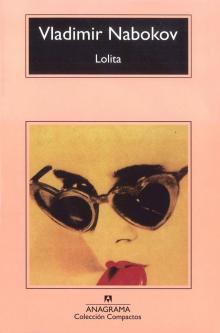 Lolita
Lolita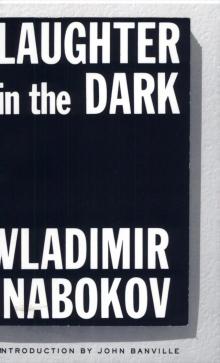 Laughter in the Dark
Laughter in the Dark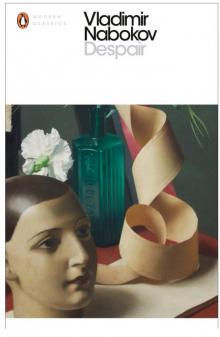 Despair
Despair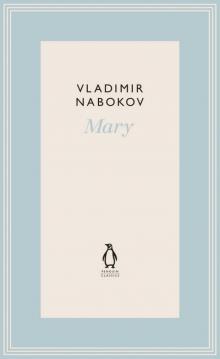 Mary
Mary The Enchanter
The Enchanter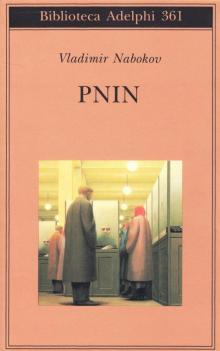 Pnin
Pnin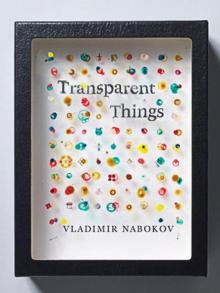 Transparent Things
Transparent Things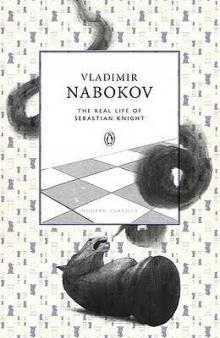 The Real Life of Sebastian Knight
The Real Life of Sebastian Knight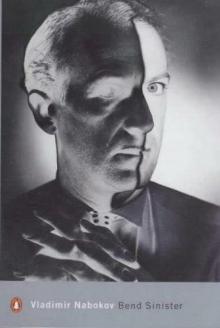 Bend Sinister
Bend Sinister Invitation to a Beheading
Invitation to a Beheading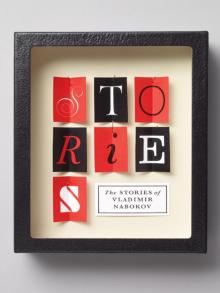 The Stories of Vladimir Nabokov
The Stories of Vladimir Nabokov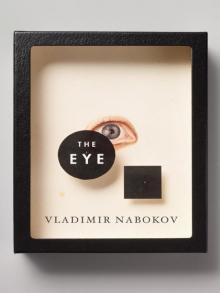 The Eye
The Eye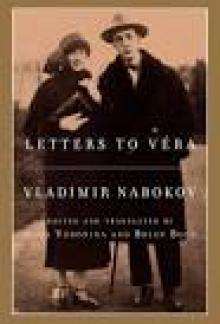 Letters to Véra
Letters to Véra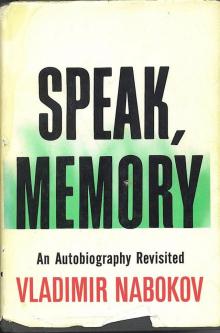 Speak, Memory
Speak, Memory The Gift
The Gift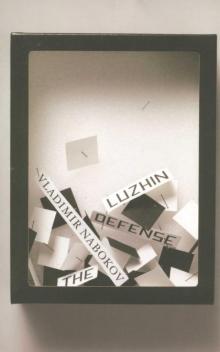 The Luzhin Defense
The Luzhin Defense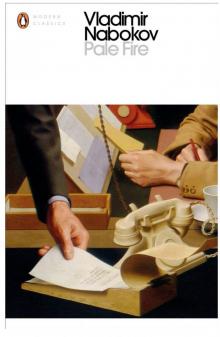 Pale Fire
Pale Fire Glory
Glory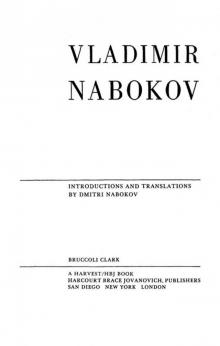 Man From the USSR & Other Plays
Man From the USSR & Other Plays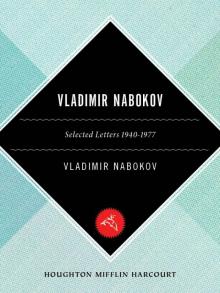 Vladimir Nabokov: Selected Letters 1940-1977
Vladimir Nabokov: Selected Letters 1940-1977 Strong opinions
Strong opinions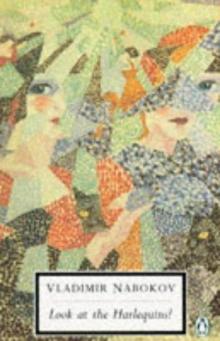 Look at the Harlequins!
Look at the Harlequins!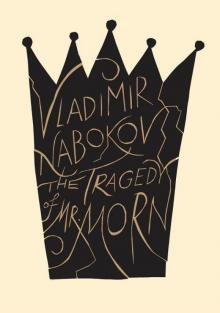 The Tragedy of Mister Morn
The Tragedy of Mister Morn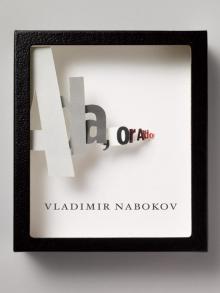 Ada, or Ardor
Ada, or Ardor Lectures on Russian literature
Lectures on Russian literature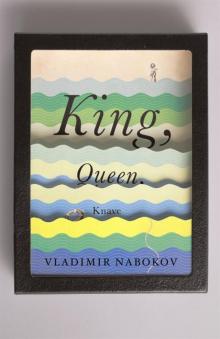 King, Queen, Knave
King, Queen, Knave The Original of Laura
The Original of Laura